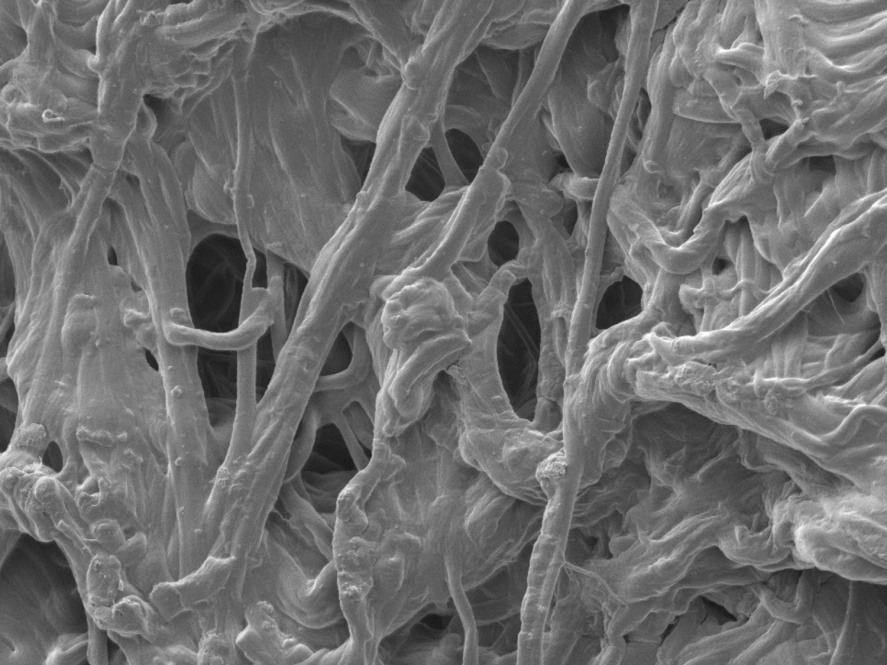Researchers from the School of Mechanical, Aerospace and Manufacturing Engineering in UConn’s College of Engineering, pursue groundbreaking research to understand the impact of aging-related physicochemical modifications on the structure and function of elastin, a vital protein that imparts elasticity and recoil function to many connective tissues in the human body, including within elastic arteries. These modifications play a significant role in age-related diseases such as diabetes, motivating the importance of studying elastin’s behavior in aging arteries.
Led by Dr. Anna Tarakanova, the project has been awarded a $3 million R01 grant from the National Institutes of Health (NIH) through 2028 to further investigate elastin and its role in arterial biomechanics in health and aging. Utilizing a pioneering multi-scale approach, the research integrates advanced computational modeling and experimental studies to unravel the complex processes of elastin deterioration from sub-molecular to tissue scales. By doing so, the team aims to gain critical insights into the mechanisms underlying arterial stiffening and other changes to vascular biomechanics during aging and disease.
Dr. Katherine Yanhang Zhang, Professor of Mechanical Engineering at Boston University, is a co-Investigator on the project.
“This collaborative project has the potential to transform our fundamental understanding of the molecular-scale processes that underlie arterial mechanical changes as we age, and drive the most prevalent aging-associated diseases,” said Tarakanova.
This innovative framework not only deepens our understanding of arterial biomechanics from the smallest scale up, but also holds the promise of developing preventative and reparative interventions to many age-related vascular diseases. The research conducted at the UConn College of Engineering is poised to make significant contributions to the field of biomechanics and improve human health outcomes in the process.



